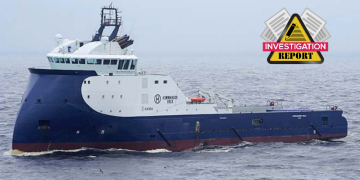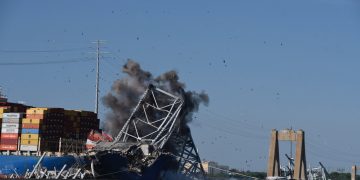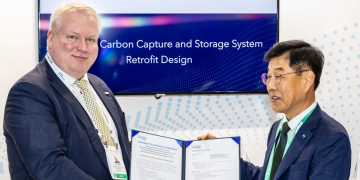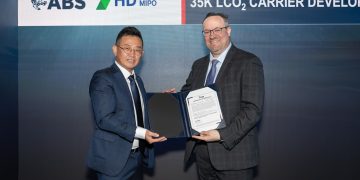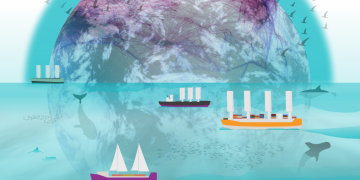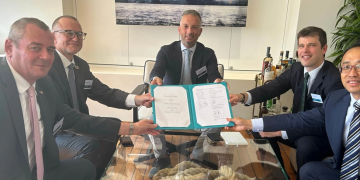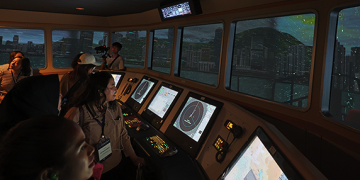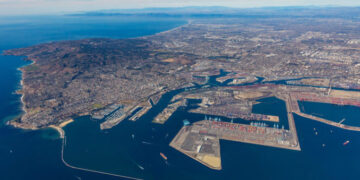A new report by the Mærsk Mc-Kinney Møller Center for Zero Carbon Shipping, examines the role of onboard carbon capture (OCC) in decarbonizing the maritime industry using a series of case studies.
The case studies analyze the impacts of full or partial application of OCC on container, bulk and tanker vessels using carbon-based fuels, as part of a newbuild or retrofit.
To gain a better understanding of the role of onboard carbon capture (OCC)in maritime decarbonization and assess OCC’s business case for different vessel types and sizes, the report analyzed the applicability of OCC to the largest shipping segments (container, bulk, and tanker), main carbon-based fuels and full and partial application as part of a retrofit or newbuild.
It also completed a series of case studies covering the installation of OCC on low sulfur fuel oil (LSFO)-, LNG- and methanol (MeOH)-fueled vessels within the three largest segments (container, bulk, and tanker).
While most of our studies focus on newbuild integration, the VLCC case study also includes a study of retrofitting a partial and full OCC system on an existing vessel
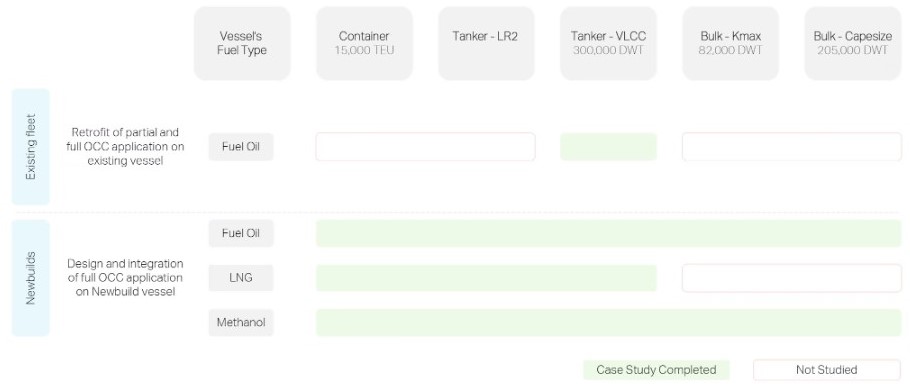
The report did not consider integration of OCC on LNG bulk carriers due to significant cargo losses. As endurance and ship speed (propulsion energy) have a major impact on the ship’s arrangement, these were carefully defined before starting each case study.
Next, it considered the required dimensions for CO2 storage tanks and their ideal location. Loss of cargo (volume and weight) when installing an OCC system was also an important consideration.
In some cases, CO2 storage tanks must be installed in cargo holds, resulting in cargo loss. For this study, loss of cargo weight was calculated as the increase of lightweight due to the carbon capture system plus the weight of captured CO2 minus the weight of consumed fuel
Based on the case studies completed, Mærsk Mc-Kinney Møller Center for Zero Carbon Shipping concluded that:
- OCC with chemical absorption is technically feasible and expected to reach commercial availability by 2030,
- Additional OCC energy requirements lead to higher total fuel consumption (up to a 45% increase),
- Potential application of OCC shows the most promise for newbuilds as retrofits are costly and can require major modifications,
- Partial carbon capture typically leads to higher CO2 abatement costs due to high initial CAPEX, and
- OCC on large tankers has the best business cases while small bulk carriers have the most challenges.
Although the emissions reduction potential of OCC is significant, currently its CO2 abatement costs are high. Still, with further development OCC could play a role in the mid-term to reduce the emission intensity of existing fossil-fueled vessels
Further analyses and developments are required to maximize OCC emission reduction and minimize costs, as well as developing business models that would allow utilization and/or storage of the carbon captured onboard vessels.
Finally, the report concludes that “although OCC technologies are still in development, they will be commercially available soon and can provide significant emission reductions. As a result, ship owners aiming to decarbonize should assess their mid-term emission reduction targets and consider including OCC if it is an option for their vessel types, sizes, and trades.”






